Introduction
In the modern manufacturing landscape, enterprises are under constant pressure to enhance efficiency, ensure compliance, and optimize resource utilization. This challenge is particularly pronounced in the chemical industry, where precision, safety, and regulatory compliance are paramount. One technological solution that has gained widespread attention is the Manufacturing Execution System (MES).
An MES system acts as the “intelligent brain” of a production facility, bridging the gap between Enterprise Resource Planning (ERP) systems and process control systems. While ERP focuses on business planning and financial oversight, MES ensures that the manufacturing process is executed seamlessly in real time. In chemical enterprises, an MES system plays a vital role in streamlining production, improving traceability, ensuring regulatory compliance, and enhancing overall efficiency.
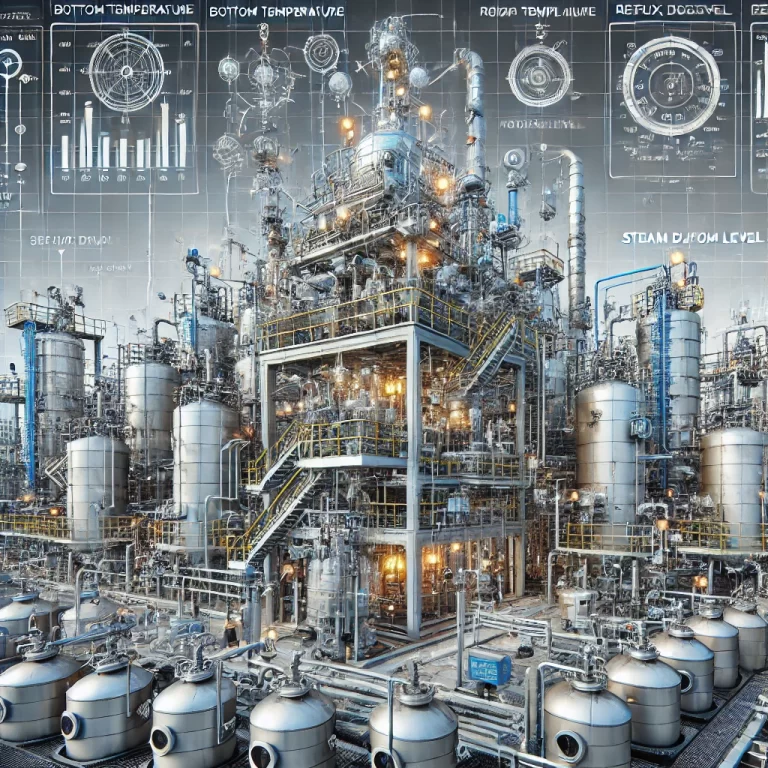
Key Functions of MES in Chemical Enterprises
1. Optimizing Production Workflow and Execution
Traditionally, chemical manufacturers relied on manual record-keeping and paper-based tracking systems, which were prone to errors and inefficiencies. MES enables digital transformation by automating the execution of production tasks. For example:
In a chemical blending plant, MES allows for precise control over ingredient ratios, preventing formulation errors.
It enables real-time monitoring of batch processing, reducing waste and ensuring product consistency.
By integrating MES, chemical enterprises can streamline their production workflow, increase operational efficiency by up to 30%, and minimize downtime caused by manual inefficiencies.
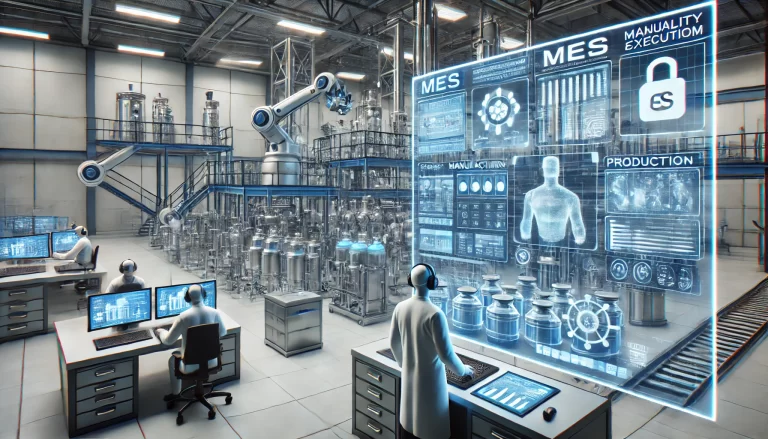
2. Enhancing Process Control and Quality Assurance
Chemical manufacturing requires stringent process control to ensure product quality and safety. MES systems help by:
Monitoring temperature, pressure, and other critical parameters in real-time.
Automating quality checks to ensure compliance with industry standards such as GMP (Good Manufacturing Practices) and ISO 9001.
Detecting deviations in formulations and triggering corrective actions before defects occur.
Example: A chemical company producing industrial solvents faced frequent batch inconsistencies. After implementing an MES system, they could trace quality issues to specific production parameters, allowing for quick corrective actions and a 40% reduction in rework costs.
3. Strengthening Regulatory Compliance and Traceability
The chemical industry is heavily regulated, with strict guidelines on environmental impact, workplace safety, and hazardous material handling. MES ensures compliance by:
Recording every step of the manufacturing process for audit readiness.
Automating material tracking from raw materials to finished goods.
Generating real-time reports for regulatory submissions (e.g., FDA, REACH, OSHA compliance reports).
Case Study: A pharmaceutical chemicals manufacturer struggled with manual tracking of ingredient origins. By implementing MES, they could automatically track raw material sources, lot numbers, and usage, ensuring full traceability and eliminating regulatory penalties.
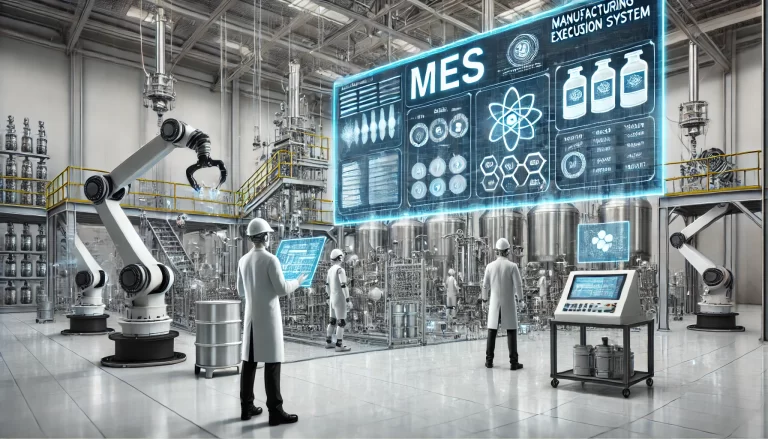
4. Improving Cross-Department Collaboration
Before MES, different departments (procurement, production, logistics) often worked in isolated silos, leading to miscommunication and inefficiencies. MES integrates all data into a centralized system, enabling:
Real-time inventory visibility, preventing raw material shortages or overstocking.
Seamless coordination between procurement, production, and quality control teams.
Reduced lead times by synchronizing scheduling across departments.
5. Real-Time Monitoring and Predictive Maintenance
MES enhances the efficiency of chemical plants through real-time monitoring and predictive maintenance. By utilizing IoT sensors, MES can:
Detect early signs of equipment failure and schedule preventive maintenance.
Reduce unplanned downtime, ensuring consistent production.
Optimize energy and resource usage, cutting operational costs.
Example: A petrochemical refinery using MES reduced equipment failures by 50% after implementing predictive maintenance alerts, preventing costly shutdowns.
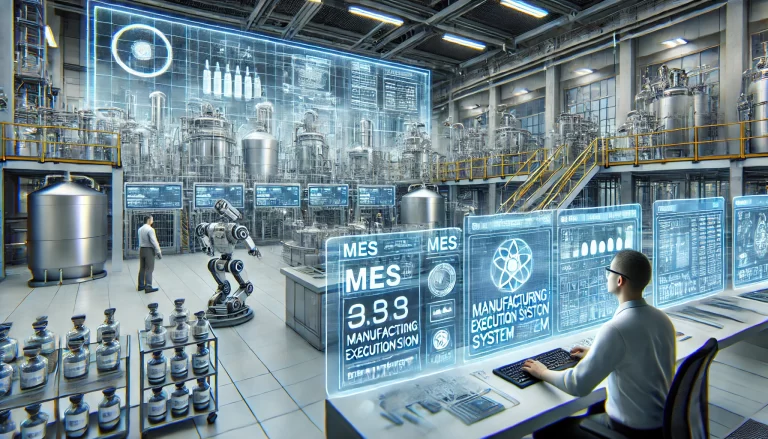
Benefits of MES Implementation in Chemical Enterprises
1. Increased Competitiveness and Market Responsiveness
With ever-changing market demands and regulatory updates, chemical manufacturers must adapt quickly. MES enables:
Shorter production cycles, reducing time-to-market.
Data-driven decision-making, allowing rapid adjustments to production schedules.
Improved customer satisfaction, ensuring on-time delivery and consistent product quality.
2. Addressing Industry-Specific Challenges
While MES offers numerous benefits, its implementation in the chemical industry comes with challenges such as:
High initial costs: MES requires investment in hardware, software, and training.
Integration complexity: MES must seamlessly connect with existing ERP and automation systems.
Change resistance: Employees accustomed to manual processes may resist digital transformation.
To overcome these barriers, chemical enterprises should implement MES in phases, provide adequate employee training, and ensure seamless integration with existing infrastructure.
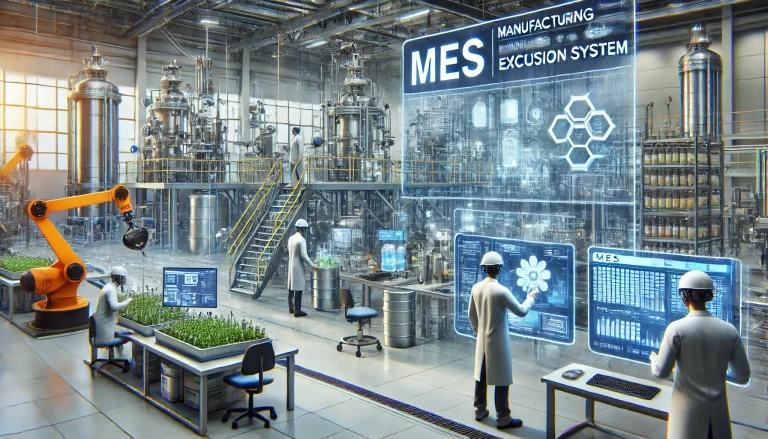
3. Bridging the Gap Between ERP and Shop-Floor Execution
ERP systems provide an overview of business planning, but lack real-time visibility into production execution. MES complements ERP by:
Providing real-time shop-floor data to ERP for better decision-making.
Enabling bi-directional communication, allowing ERP adjustments based on actual production conditions.
Ensuring that production remains aligned with business goals and customer demands.
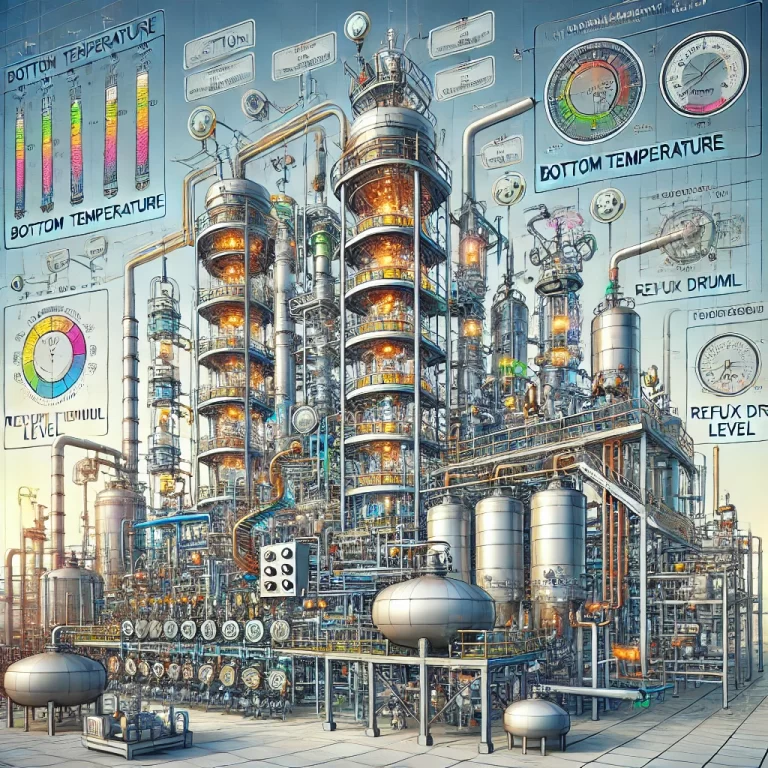
Conclusion
For chemical enterprises looking to enhance operational efficiency, ensure compliance, and maintain a competitive edge, implementing an MES system is a game-changer. By optimizing production workflows, quality control, compliance, collaboration, and predictive maintenance, MES transforms traditional manufacturing into a fully digitalized, data-driven process.
With the rising complexity of the chemical industry, businesses that leverage MES will achieve higher efficiency, lower costs, and improved product quality, positioning themselves for sustainable growth in an increasingly competitive market.
As chemical enterprises continue their digital transformation journey, MES will remain an essential tool in ensuring precision, efficiency, and compliance. The question is no longer whether to implement MES, but rather how quickly it can be adopted to stay ahead in the competitive manufacturing landscape.
